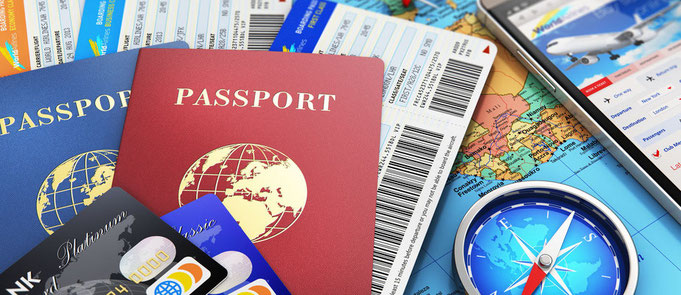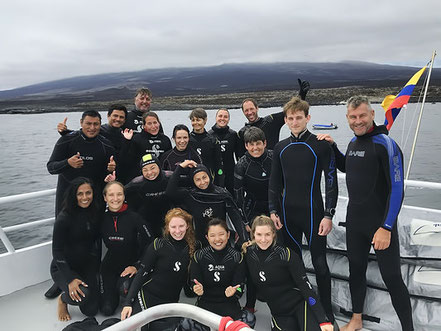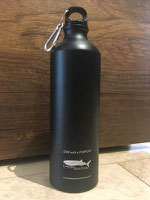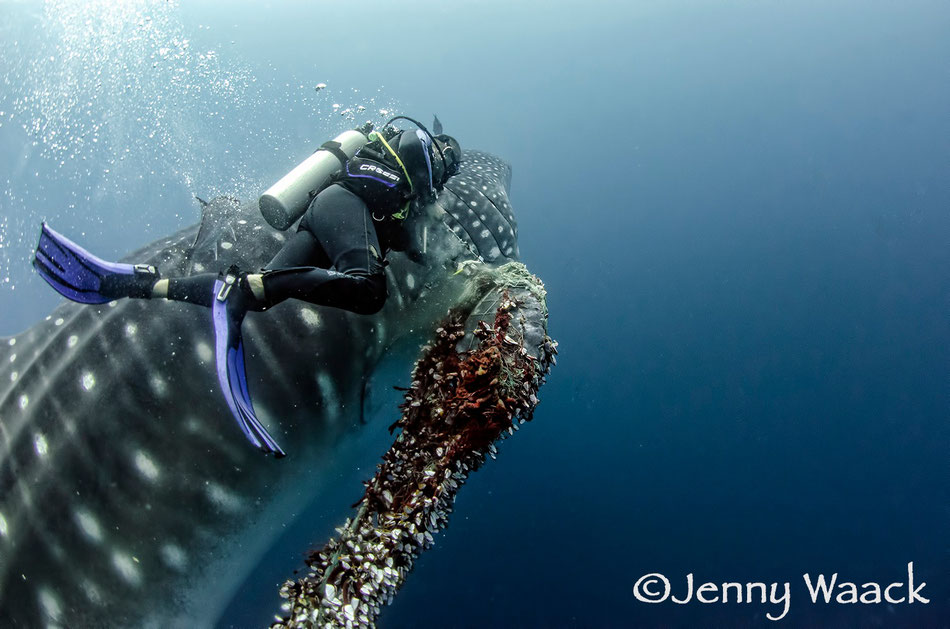Sustainable, Responsible, Ecotourism

While tourism brings numerous benefits such as job creation, economic growth, and opportunities for cultural exchange, it is important to acknowledge and address the negative aspects of this industry. These negative impacts include:
Local pollution: Tourism can contribute to air pollution, water pollution, noise pollution, waste generation, sewage problems, and visual degradation in destination areas.
Over-consumption of natural resources: Unregulated tourism can lead to deforestation, depletion of water resources, and overpopulation in certain areas, placing a strain on the local ecosystem.
CO2 emissions: The burning of fossil fuels for transportation, accommodation, and other tourism-related activities contributes to CO2 emissions, which contribute to global warming and climate change.
Threats to nature and biodiversity: Unsustainable tourism practices can endanger local ecosystems, damage natural habitats, and disrupt wildlife populations.
Cultural and social impacts on locals: Rapid tourism growth can lead to gentrification, the loss of cultural authenticity, increased traffic congestion, and added stress on local infrastructure and services.
Despite these negative impacts, our intention is not to discourage tourism entirely. Rather, we advocate for an alternative approach: Responsible Travel.
Responsible Travel
It is essential to mitigate these negative impacts through responsible and sustainable tourism practices that prioritize environmental conservation, respect local cultures, and support community development. Responsible travel is an intentional and ethical way of engaging in tourism that acknowledges and addresses the environmental, social, and cultural consequences of one's travel decisions. It entails actively making choices that minimize adverse effects and maximize beneficial outcomes for local communities and the environment. Today, travelers are increasingly scrutinizing the travel operators they select and are becoming more conscious of the ecological footprint generated by their travel choices. Ecotourism, in particular, promotes visitation while simultaneously striving to conserve natural landscapes and species.
Galapagos Shark Diving's Sustainable Practices
When travelling with us you choose positive impact dive travel and giving back to the oceans. Not only do we have the highest standards for ecological sustainability and responsible dive ethics but also make a direct monetary donation to Galapagos marine research. Read on to hear more about how we make sure that we are not only taking, but also giving back to the areas in which we operate.

Impact on Local Communities
Hiring Locals:
The ship operator of our Shark Conservation Dive trips employ local Galapagos residents to crew the boat including the dive master and the ship captain. Additionally, the hotels that we recommend and shuttles divers are often family businesses and owned plus operated by locals.
Furthermore the vessel operator that we use for our Shark Conservation Dive trips started donating to Galapagos research projects after working together for several years.
Sourcing locally produced products:
Our ship operator is committed to sourcing local products whenever possible. Given the remote nature of the Galapagos Islands, the majority of items need to be imported from mainland Ecuador. However, on our ship, we proudly offer exclusive Galapagos Islands-produced coffee and strive to serve locally sourced fish and meat from the Galapagos whenever feasible.

Plastic Awareness:
Galapagos Shark Diving urges travelers to minimize their plastic usage by bringing along a refillable water bottle for water, tea, or coffee during their onboard experience, as well as a reusable bag. In case a passenger forgets to bring these items, we offer branded water bottles and cotton bags for sale on board, with the profits from these purchases going directly to support the Galapagos Whale Shark Research project.
Galapagos Islands - Location with Marine Protected Areas
The Galapagos Islands are subject to regulations enforced by the Galapagos National Park Directorate (GNPD) and the Ecuadorian Ministry of Tourism. These regulations prioritize the involvement of local residents and the utilization of their products, while also emphasizing waste reduction and water conservation. To minimize impact on the delicate ecosystem, regulations govern the sites to be visited, the timing of activities, and even impose limits on the maximum number of passengers allowed. To operate in the National Park, all boats navigating the Galapagos Islands must undergo a thorough approval process that assesses various technical and logistical aspects.
To learn more check out this article (click here)
Opting to travel in small groups has a lesser impact on the local flora and fauna compared to large crowds visiting the same destination simultaneously. Therefore, it is recommended to prioritize visiting locations that have established regulations in place to ensure responsible tourism practices.
See below for an outline of the Required Galapagos Entry Fees that you are obligated to pay upon entering the Galapagos. These fees are essential for the conservation of the diverse flora and fauna, both on land and in the marine ecosystems. Additionally, they contribute to the betterment of the local community by enhancing basic services, supporting education initiatives, promoting sports, improving healthcare, ensuring environmental sanitation, providing environmental services, and enhancing services directly related to tourists.
Required Galapagos Entry Fees
Galapagos National Park Entrance Fee
All tourists visiting the Galapagos Islands must pay an entry tax to visit the archipelago. Most foreign tourists over the age of 12 pay $200 (as of August 1st, 2024), while children pay $100. The Galapagos Islands Galapagos National Park announces that, "Funds from the entry tax for tourists are used to finance the conservation of biodiversity of flora and fauna, terrestrial and marine, and benefits the local community by improving basic services, education projects, sports, health, environmental sanitation, environmental services and services directly related to tourists."
Transit Control Card (Tarjeta de Control de Transito - TCT)
INGALA (Ecuadorian governmental agency) has instituted the TCT to help keep track of who is coming and going to the islands. Visitors must go to a booth in the airport with their plane tickets to get the card, which costs $20 (cash only). The card is turned in at the end of the trip. The card is designed to help control immigration to the islands to ensure that overpopulation does not occur and damage the islands fragile island ecosystems.
Click here for more Information

Respectful Marine Wildlife Interactions
Encountering marine creatures in their natural habitat can be an exhilarating adventure. Although it may be tempting to get closer to these extraordinary animals, it is essential to prioritize their well-being and ensure your own safety by maintaining a respectful and safe distance. At Galapagos Shark Diving, we actively promote responsible interactions with marine wildlife and strictly discourage any behavior that poses a threat to the animals or their habitat.
Our Shark Conservation Dive Liveaboards are led by knowledgeable shark experts who are trained in wildlife research. In certain circumstances, when marine animals are entangled in fishing nets or other human-made debris that poses a threat to their well-being, these experts may intervene and release them. This careful and compassionate approach ensures the safety and protection of the animals we encounter during our expeditions.

Packing/ Luggage Recommendations

For a dive trip, we advise travelers to pack their luggage as light as possible while ensuring they have the necessary items. It is essential to prioritize a collection of essential items, check out our packing recommendations (click here). Additionally, we strongly encourage the use of reef-safe sunscreen. To minimize plastic waste in the Galapagos Islands, we recommend limiting the amount of plastic you bring and, if possible, taking any plastic products back home for recycling once they are no longer needed.
Direct Monetary Donation to Galapagos Marine Research Supporting the Conservation of Whale Sharks & the Oceans
For every diver, we donate to the research of the Galapagos Whale Shark Project. This team is studying the unique population of adult whale sharks in the Galapagos. As of now, we have contributed more than 45,000 USD to support marine conservation efforts in only 4 years! We take immense pride in the amount we have donated and the valuable work that the research project is undertaking.
Additionally, the shark scientists on board will receive a salary that enables them to dedicate more time to studying the creatures, while simultaneously engaging in outreach efforts. In small-scale scientific projects like the Galapagos Whale Shark Project (GWSP), scientists contribute their time, effort, and expertise on a voluntary basis, as no salaries are provided for their involvement. While volunteer work is commendable, it restricts the amount of time scientists can allocate to the projects, as they must also devote time to paid work in order to sustain their livelihoods.
While studying the ocean holds immense significance, it is equally crucial to educate communities and society at large. The scientists affiliated with the Galapagos Whale Shark Project (GWSP) not only deliver informative presentations during Conservation Dive Trips, but they also actively engage with the local community in the Galapagos Islands. This includes visiting schools, participating in educational programs, and conducting community talks, all requiring a significant investment of time and effort.
"In the end we will conserve only what we love; we will love only what we understand; and we will understand only what we are taught." (Baba Dioum) This quote is very true as governments who decide about protection zones will only protect what they understand. Every year millions of sharks are killed for their fins or caught as “bycatch” like many other marine wildlife like manta rays, turtles, sea lions amongst others. One way to ensure that a species may survive is to protect those areas key for their reproduction (mating, birthing, etc.). Until now only 5 % of the world oceans are truly protected! Without a healthy ocean we won't have a healthy earth! It is not about a single species but the entire ecosystem that we need to understand if we are indeed going to protect the oceans for the future. If we fail collectively to achieve this goal, the future of the planet and the entire human race is at risk. Time for discussion is over, the time to act is now.
Read more about the research of the Galapagos Whale Shark Project.
Citizen Science Programs
Galapagos Shark Diving's approach to citizen science inspires us all to get involved in marine conservation efforts. All of us can be citizen scientists and contribute to supporting conservation efforts. A scientist can only be in one place at one time. By harnessing the power of millions of ambassadors, we can expand the scientific knowledge exponentially while supporting the conservation of marine wildlife. By collecting data on these amazing creatures, we can make a real difference in understanding and protecting our oceans. Check out our blog post (click here) to learn more about our efforts and how YOU can get involved.
Divers that are joining the Conservation Dive Liveaboards do learn how they can support the ocean health in the Galapagos Islands while enjoying the beauty of the underwater world - but not only on the islands. Many of those programs are available worldwide. Every diver will travel with more open eyes in their next dive adventure and can support from now everywhere in the world for a more healthy ocean.
Programs like Citizen Science is on the one hand a tool to collect vital baseline data about many endangered marine animals such as sharks, rays, turtles and so on. But also gives the chance for every diver involved to create an emotional connection to those animals. If you dive next to a gigantic gentle whale shark, you follow its path, where it is going - you start caring about one specific animal, but you also start caring and wondering about the healthiness of the oceans. The goal of the Conservation Dive Liveaboards are of course to collect data, but also give everyone the chance to understand more about the oceans and their inhabitants and become connected to the oceans in a different - maybe more personal way.
Additionally all dive masters on board the vessel are part of our citizen science programs as well. By including them we hope to create more awareness and participation amongst the dive masters in the Galapagos Islands. In the last years due to hard work of the GWSP scientists and operators like Galapagos Shark Diving the group of dive masters participating in the citizen science programs grew. Although there is still a long way to go - it needs to start somewhere with someone! Together with divers, dive masters and scientist we can make a difference!
Find a selection of different Citizen Science programs that we have onboard.
What is the alternative?
Frequently, we encounter the remark "leave them alone" when it comes to safeguarding the ocean. We acknowledge the underlying sentiments conveyed by such comments.
What would be the alternative to tourism in the Galapagos Islands? Let's imagine that a decision is made today to prohibit tourists from entering the islands and engaging in activities like diving or accessing the ocean. In such a scenario, it is highly likely that the local inhabitants would need to seek alternative sources of income in order to sustain their livelihoods. During the COVID-19 pandemic, for instance, tourism came to a complete halt for several months, prompting people to return to fishing, agriculture, and possibly even resorting to illegal practices like long-line fishing to support their families financially.
Moreover, it's important to recognize that ceasing tourism does not eliminate the presence of a large fishing fleet just beyond the marine protected area. The pollution of the ocean persists
regardless of whether tourists are allowed to visit the islands. Similarly, climate change continues its impact, unaffected by the absence of tourists traveling to the islands. While it would be
ideal to have a protective bubble around the islands that ensures everyone's happiness and safety, the likelihood of such a scenario occurring is quite slim, isn't it?
Responsible and sustainable tourism can have positive impacts on biodiverse hotspots like the Galapagos Islands. If everyone starts to dive & travel sustainable and responsible this can have a transformative power. It provides an alternative source of income for fishermen, who would otherwise resort to depleting fish populations for profit rather than showcasing them to tourists. While it is acknowledged that not all tourism activities in the islands are effectively managed, significant progress has been made in regulating the Galapagos Islands as a marine area. The Galapagos Islands are one of the better regulated marine areas in the world. Dive travel, in particular, can be conducted responsibly, especially when divers expand their perspective to understand how they can actively contribute to ocean conservation while exploring the incredible underwater world. Ultimately, it comes down to the individual choices each of us makes on a daily basis.
A Pioneer for Sustainable, Educational Dive Travel - Leading by Example
We strive to raise awareness among dive companies about the profound impact their activities have on the oceans. It is crucial for them to recognize the growing demand from tourists for
sustainable and eco-friendly travel experiences. We are encouraged to witness a shift in mindset among some liveaboard operators in the Galapagos Islands as they begin to embrace this
change. We aim to inspire all dive operators in the region to allocate a portion of their profits towards supporting local research organizations. Together, we can make a significant
difference in preserving and understanding the marine environment.
If you have further questions please do not hesitate to contact us. You can reach us at info@galapagossharkdiving.com. We are happy to assist you in any question you might have.
Join one of our Shark Conservation Dive Trips today and start supporting the health of the ocean!









Write a comment